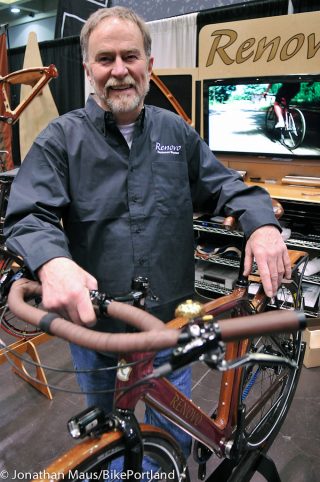
(Photos: Jonathan Maus/BikePortland)
The ride for Renovo Hardwood Bicycles is over.
The website is gone. No one responds to emails. The building at SE 8th and Ash that has housed its factory since 2008 is for lease. And there’s a lien notice posted to the front door.
According to the notice, Kenneth Wheeler of Renovo Designs LLC owes $34,864.53 in rent that hasn’t been paid since May.
This is a sad ending to a company that was once one of the bike industry’s shining stars.
Wheeler launched Renovo at the 2008 North American Handmade Bicycle Show (NAHBS) in Portland. With experience and success making hardwood lighting fixtures and airplanes, Wheeler figured out how to make bicycle frames with a CNC machine. When I first visited his shop in February 2008 he proudly watched his CNC machine at work and said it would be done with the frame in five minutes. Not only were the frames beautiful and relatively easy to produce (or so it seemed), Wheeler said they tested stronger than high-grade aluminum.
He was clearly on to something.
After NAHBS, Renovo’s brand grew quickly. Three years later Wheeler had inked a partnership with German carmaker Audi; opened a showroom in the tony city of Sausalito, California; and graced headlines all over the world.
Not surprisingly, orders rolled in.
“When I got there we had about 85-90 bikes in the queue and zero cash. We had a lot of unhappy customers, then restricted cash flow. That stuff tends to snowball.”
— Tyler Robertson, former employee
Sales peaked in 2012. Unfortunately that’s also when things began to go awry due to a combination of production issues and the challenge of meeting customer demands.
Tyler Robertson, a former employee in charge of marketing who worked for the company in the summer of 2014, recalled in an interview today that they faced, “massive delays in production.” While the CNC construction method sounds quick and easy (Wheeler told me back in 2008 that his CNC process, “Lends itself to high volume production”), the truth was much more complicated. “It was a really hands-on, meticulous process,” Robertson said. Adding to the problem were customers frustrated by longer than expected delays. Robertson says they were promised a bike in six-to-eight weeks; but some people on the list had been waiting as much as two years. As word spread of the delay (there are several very negative Yelp reviews during this period), many customers cancelled their orders.
Renovo was counting on those orders to meet payroll and other expenses. As orders dried up, so did their main source of revenue.
Advertisement
“When I got there we had about 85-90 bikes in the queue and zero cash,” remembers Robertson. “We had a lot of unhappy customers, then restricted cash flow. That stuff tends to snowball.”
“It’s a complicated mess.”
— Ken Wheeler, company founder
The backlog wasn’t just because of demand. Production problems started to bubble up as early as 2012, according to former employee I spoke with today who asked to remain anonymous. The allure of Renovo’s production model was that you could just put the wood in the CNC machine, hit a few buttons, and a bike frame would pop out. But wood is a “tricky material,” the former employee shared with me today. “The problem with CNC’ing wood is that, especially with the multi-laminate, it’s tremendously difficult to machine wood in a consistent fashion with the tolerances needed for a bicycle.”
Each frame was made-to-order both in terms of size and wood selection. Add the fact that they were built as two separate halves that had to be accurately joined together and you have a very complicated process.
None of the production difficulties were insurmountable, but each step meant more hands-on work to ensure quality, which in turn led to more delays.
Reached on the phone today, Wheeler said offering custom bikes was, “A stupid idea.” He said it was complicated to keep track of 20-40 custom bikes on the production floor at any one time. Managing customers’ needs was also difficult. “Our record was 128 emails from one single customer about his bike.” He told another story of a customer’s wife who threatened to sue Renovo for fraud after they took so long to deliver a bike.
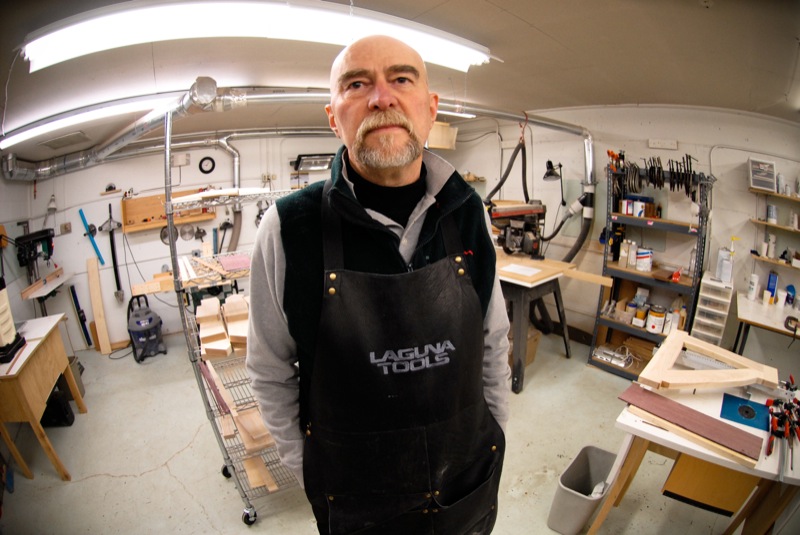
Hoping to stem the tide and scale-up production, Wheeler decided to stop selling custom frames in 2014. In a company press release, Wheeler joked about the backlog: “Struggling to control this unruly beast has kept Advil profitable.”
Unfortunately that shift didn’t fix the Renovo’s production problems.
As each new “ready to ride” model was released, the company would publicize six different sizes on its website. “Of those six,” the employee told me today, “Only 2-3 of the sizes were fully programmed into the CNC machine. There would be errors in terms of programming.” If the CNC work wasn’t perfect, the two halves of the frames would not line up perfectly, increasing the chance for misalignment and adding even more production time to get it right.
“Things came to a head when production staff felt like their safety concerns weren’t being heard.”
— a former employee
By 2015 the company had reached a breaking point. Wheeler shared with me today that he was under so much stress he had a heart attack. He feels he did everything he could to increase production and boost sales. They hired an outside PR firm, added staff, and continued to get rave reviews for the bikes in major magazines. Despite those efforts however, Wheeler said sales never returned to their 2012 level.
“If you don’t have the sales,” he said. “Nothing else matters.”
In 2016, Wheeler met Al Spinks, a Renovo customer who also happened to be a wealthy, fifth-generation farmer from Texas who loved to ride bikes. Spinks offered to invest in Renovo to help them get over the hump. Wheeler eagerly accepted. He used the money to increase production, do more marketing, research and development, launch new models, and hire an engineer who previously worked at Shimano. (Bicycle Retailer & Industry News magazine wrote about Spinks’ investment in March 2018.)
But according to a former employee, the large infusion of cash led to a new problem: Pressure to meet production quotas that led to a difficult working environment.
After his heart attack in 2016, Wheeler took his first real vacation over Christmas in 2017 and realized he didn’t want to return to the stress Renovo caused him. His partner Al Spinks was interested in taking over the company, but some of his other investments hadn’t been going well. Ultimately, “Money stopped coming from him,” Wheeler said.
By this past spring, a former employee told me, “Things came to a head when production staff felt like their safety concerns [both in terms of their personal safety and their ability to ensure a safe product] weren’t being heard.” In March of this year seven members of the production staff walked out. “After that,” the employee shared, “the place was on life support.”
Tensions between remaining employees and ownership continued into April when all three of the engineering staff left the company. From a staff that once numbered 12 employees, just three were left to make one final sales push at the big Sea Otter Classic event in April. “We went to Sea Otter and nothing came of it,” Wheeler said on the phone today. “And that was the end.” By May all remaining employees were gone. Wheeler continued to negotiate an exit with Spinks. Then on July 2nd, Spinks, just 53 years old, had a surprise heart attack and died.
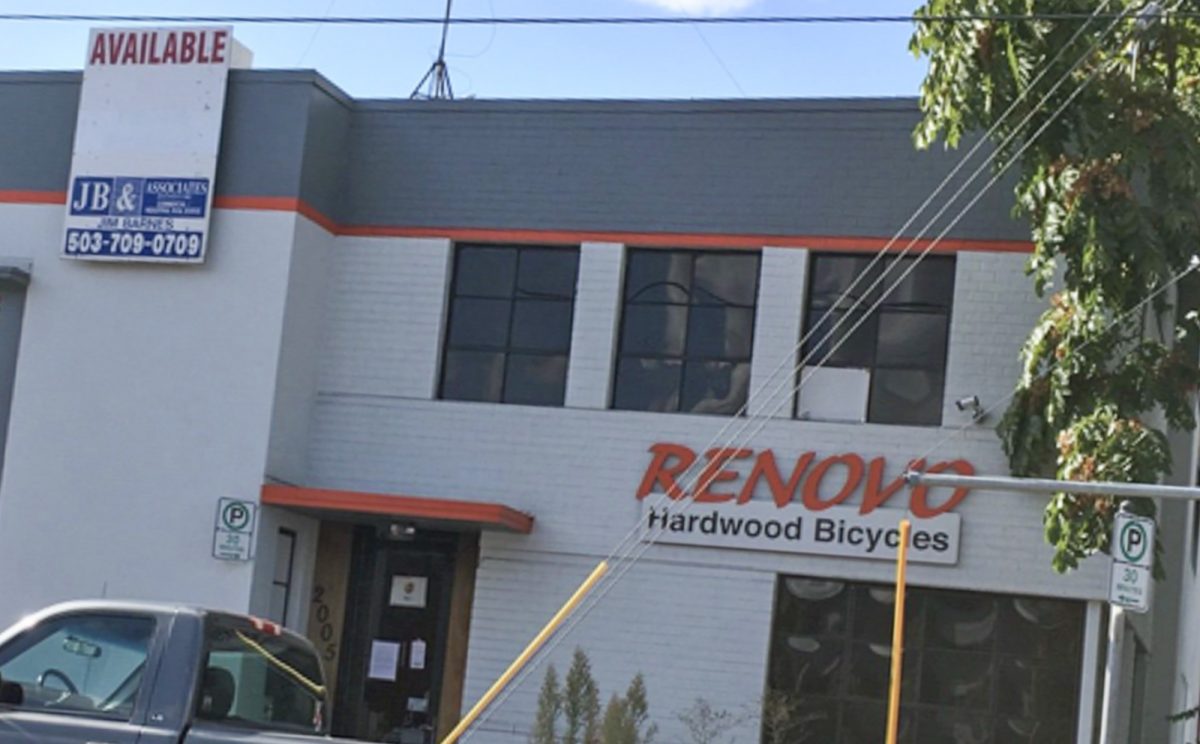
(Photo: Paul Souders)
Thinking back on the last 11 years, Wheeler said today that he feels he did everything he possibly could to make Renovo a success. What I’ve shared in this story is only part of the drama and difficulty this company faced. There was the broken CNC machine and the parts needed to fix it that seemed to never arrive, the difficulty in hiring machinists, the disagreements between Wheeler and his employees, a stubborn sales decline, and so on. “It’s a complicated mess,” is how Wheeler described it today.
“My only consolation is that I — we — did the very best we could do to make it work. I didn’t want to let our customers down; but I couldn’t solve it. It just didn’t work… That’s not totally unusual in the world of business.” Especially in today’s bike business. Just one year ago, Renovo was a subject in an Oregon Business story that chronicled the tough climate for bike builders in Oregon.
What about bikes themselves? Everyone I talked to for this story had nothing but great things to say about them. Wheeler seemed to take solace in the fact that — through all the ups-and-downs — everyone loved the bikes. Even the guy whose wife threatened a lawsuit. “We ultimately shipped him the bike and he posted pictures of it on our Facebook page!” Wheeler beamed.
UPDATE, 11:03 am on 10/5: Several former employees have shared scathing allegations of misconduct from Ken Wheeler on company review site Glassdoor.
— Jonathan Maus: (503) 706-8804, @jonathan_maus on Twitter and jonathan@bikeportland.org
Never miss a story. Sign-up for the daily BP Headlines email.
BikePortland needs your support.



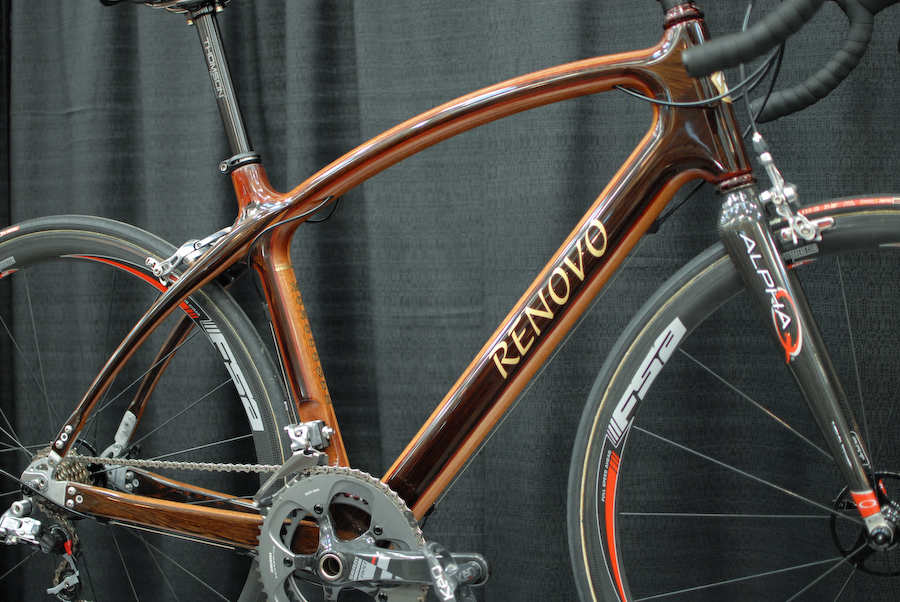
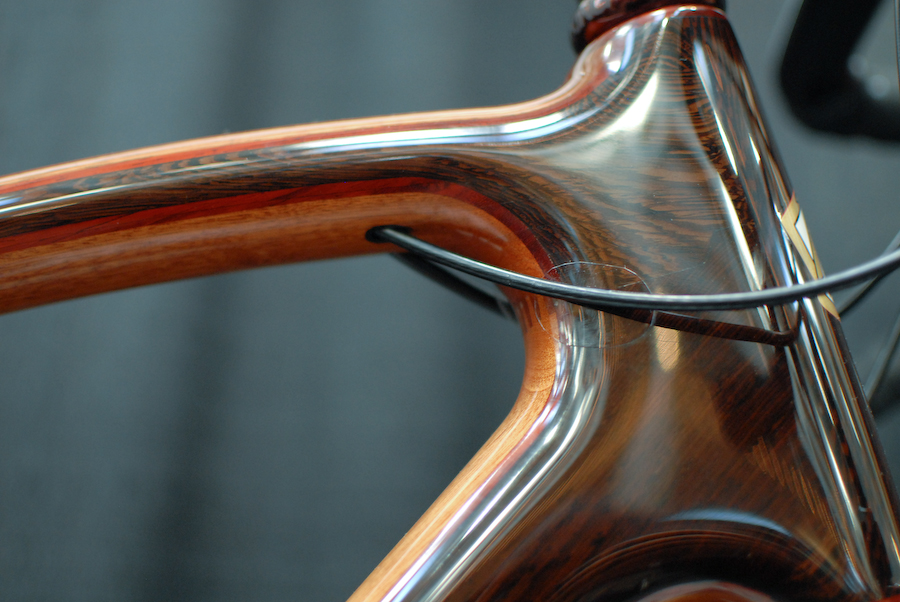
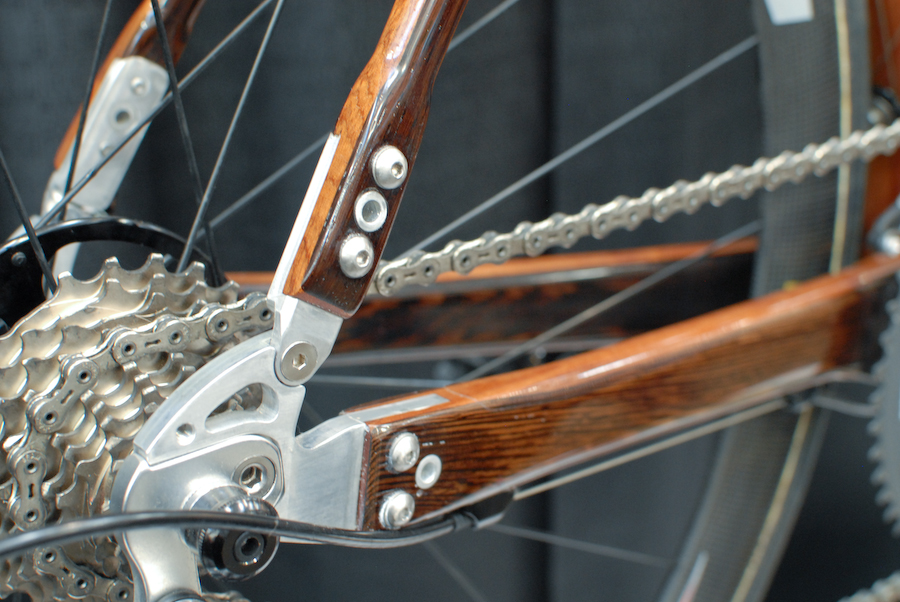

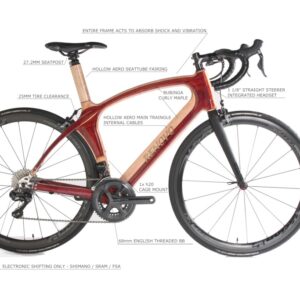
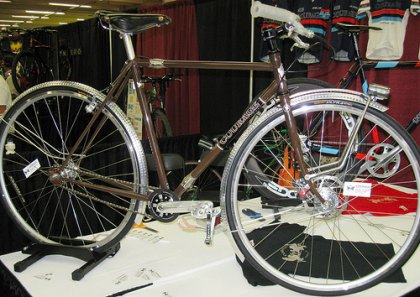

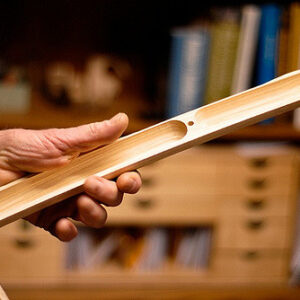
Thanks for reading.
BikePortland has served this community with independent community journalism since 2005. We rely on subscriptions from readers like you to survive. Your financial support is vital in keeping this valuable resource alive and well.
Please subscribe today to strengthen and expand our work.
Here’s another bike maker that’s effectively gone out of business: CETMA Cargo in Eugene. They’ve been unable to fill paid orders, customers have been complaining all over their social media accounts, and they’ve deleted their Facebook page.
I admire their bikes. I’ve come across similar stories from various small manufacturers on the East Coast and Midwest – a few blame foreign competition, but most have similar stories of over-expansion, over-exposure, promising far more than they could possibly deliver, and various complex labor and money-flow issues. The series of heart-attacks is a new one to me, but I do know cancer treatments and other health issues have impeded bike firms before.
Apparently the owner is a misogynistic sociopath, if you believe the glassdoor reviews: https://www.glassdoor.com/Reviews/Renovo-Hardwood-Bicycles-Reviews-E1800718.htm
Good riddance.
Woah. Bummer to hear. Lane is a good guy from what I recall.
I saw that too, when I tried to go to the CETMA site a couple weeks ago. Was hoping it was just technical difficulties. 🙁
Cetma seems to be making cargo bicycles again.
Running a successful small business is way tougher than many folks imagine.
Thanks for the detailed forensics, Jonathan.
I have an idea. How about a bike tax?
I say this just to point out that all of the Oregon legislature pro-business banter sounds dumb when you realize that one of the only sales taxes in Oregon is a punitive tax on a local industry that is struggling. If the OR bike industry was successful enough to buy votes in the state senate, there wouldn’t be a bike tax.
And, its a bummer that Renovo is out. I always admired the creativity and beauty behind those bikes.
Do you really think a $15 tax is keeping people from buying $2000 artisan-made bike frames?
In a city where many people can barely keep a roof over their head, who has money for $2000 artisan-made bike frames?
The tax is on bikes that cost $200 or greater, including children’s bikes.
The value or intent of a tax, and the integrity of law makers who passed it, isn’t measured by whether or not someone will pay it under specific circumstances.
Don’t get me wrong, I’m not in favor of the tax. However, to state that the $15 bike tax is contributing to the struggle of the local bike economy is naive.
more like $5000 artisan-made bikes.
First Islabikes, now Renovo. Moral of the story: never send a bike to Eben Weiss.
There’s a saying in the restaurant industry that the easiest way to get to one million dollars is to start with two. The bike industry is no better, but I applaud those who try.
In all seriousness it is unfortunate that they did not beat the odds, but at least they’ve regained some health and sanity. Money is nothing without them.
Right? It’s wiggin’ me out. It’s like 2007 all over again.
If I hear of another couple of bike shops / manufacturers calling it quits, then I’m shorting the market.
Beautiful bikes though. I’ve never seen one in the wild.
That’s one of the first things I thought when I saw this article. BikesnobNYC=kiss of death. Perhaps Eben could review an SUV next…
Marin Bikes seems to be doing well
Running a small niche bike business (or any small business) is incredibly difficult and the effort it takes to successfully balance sales/marketing/employees/innovation/etc cannot be overstated.
Sad to lose two local bike businesses this week.
Yep. More sad news…the Portland bike boom with 1000s of new bike commuters has long stalled and now the small creative businesses that catered to them are going going gone…please please please City start doubling down and impliment the 2035 bike plan with quick parking removal…or else it will be too late if another 10 years goes by. This is an emergency to the Portland vision.
While it’s incredibly sad to see the people who create such beauty find themselves unable to keep the business afloat, all is not lost. We’ll soon have several of the folks currently working out of their garages to create and convert bikes to e-bikes growing into prime-time. Sadly, none of those contraptions, useful though they are in raising our mode share, are objects of art.
I’m concerned about the future of e-bikes given the cost (and availability) of replacement batteries. These batteries have a life span of 400-500 recharges. Most are made in China and Japan, and are expensive. And are getting more expensive as tariffs kick in.
That’s an outdated number. Batteries have improved quite significantly over the last decade. Most will now last at least 1,000 cycles and much more if they are managed properly.
Deep battery cycles are the most damaging. That’s where you charge it 100% full and then use it to 0%. It’s also damaging to leave the battery 100% charged all the time. Batteries do best when you shallow cycle them, charge & discharge between 20 and 80% capacity and do so without having them sit idle for long periods of time. Temperature swings are also bad but this is where Portland is actually ideal because we never get really hot but also don’t get really cold weather either.
One of the myths about battery charging is that rapid charging is bad. Not all rapid charging is bad for the battery. The problem is the generation of heat rather than rapid charge acquisition. If heat can be managed, then rapid charging is actually not a problem. Most people want to rapid charge from 0 to full and this is where heat generation is hard to avoid.
One of the ways to avoid this is to have multiple batteries. I know, money solves all problems but managing 2 batteries allows you to avoid some of the issues I discussed above and both batteries will last a lot longer than a single battery used to failure and then a second battery used alone to failure. So in the end, buying a second battery while your first one is still working is actually going to save you money assuming you use your bike enough for both batteries not to sit around for long periods of time without charging and discharging.
Should have bought one and stuck it away. In future years it’ll be worth a bundle to collectors and enthusiasts.
I wonder if they hired a manufacturing engineer at some point? Of course, given the recent booming economy, it has been hard to find good engineers looking for a job. This is unfortunate.
That was my thought, too. Not that we have the complete history, but that seems to have perhaps been the missing link to make production. I understand cash flow challenges (on paper, anyway, I’ve never actually tried to run a small business), but with the benefit of armchair critiquing, I’d say hiring marketing without having the production cycle nailed down may have been the fatal flaw.
I was the de-facto ME from 2009-2011, but also the Design Engineer, CNC operator and sometimes Bike Assembler…With a degree in Mechanical Engineering I was mostly making it up as I went along. Ken could also just be very mean and verbally abusive…It was a hard place to work and morale got pretty low. At one point we were venting some pretty nasty automotive grade ‘linear polyurethane’ paint from the paint booth directly into the wood shop and operating table saws etc. wearing gas masks. I would hand him quotes for a chimney fan system and he’d just brush it off. Wasn’t until he fired another guy and he went straight to OSHA that they got the vent system put in the next week… But that was the kind of environment it was at the worst of it. He was very ambitious almost to the point of being manic. Instead of focusing on what were struggling with it was always onto the next model, the next big partnership etc. Rough…but I do miss the excitement of it. Ironically I’m now a Manufacturing Engineer doing Electric semi-trucks for about 5 years and counting and I love it…and no toxic fumes in the office.
It’s interesting to me to see the different reaction to a niche adult bike manufacturer ($3500 wooden frames) going out of a business vs a niche kids bike manufacturer ($550 bikes) leaving the US. Does it say something about how we feel about kids bikes?
Craigslist.
I wouldn’t myself buy either bike.
But speaking just for myself, someone actually creating a bike more or less from scratch is far more interesting to me than someone packaging components into a bike.
Surprised to see that comment from you, 9. Wouldn’t the first bike would be the most important? People with $5000 can always find a nice bike to ride. IMHO scooter bikes and properly sized, fully functional kids bikes are about the best entry level tools for the job. Some of the best bike handlers I know came up through BMX racing. Little bikes.
Packaging components? Seems like getting the right components onto a frame is not the least part of bike building (and just from the comments here, it was a challenge for Renovo.) I’m glad that somebody took on the wooden frame project and I’m sorry Renovo didn’t make it, but frankly it would worry me to push a bike that was so beautiful and expensive . I’ve had a really fun bike built on a crap frame with good wheels and an odd mixture of parts hung on there by an artist.
This makes me very sad, not just for mr. Wheeler but because it is another signpost along the road telling us our fair city is quickly turning from a community of Artisans, Bikebuilders, Musicians and Brewers into a burg of clerks, call center staffers, orderlies and real estate hustlers.Perhaps it is the March of progress, or just the realities of the costs and requirements of the modern world. But darn I miss the days when everyone I met did something cool for a living and got everywhere on a bike.
Ah, that magical time that never was. Cycling in Portland peaked in 2014 at 7.2% of commuters. It’s currently at 6.3% (2017), which is better than or equal to every year prior to 2014. In fact, a lower percentage of Portlanders are car-dependent now than every before, with motorized commuting down to 65.3% of workers.
That golden age many years ago when everyone rode their bikes just never happened. It could be that you moved in a tiny echo chamber of people who did ride, but that wasn’t terribly representative of the city at large, just as it isn’t now.
(I can’t speak to whether or not fewer people have cool jobs/sources of income/hobbies. Personally, I find most people’s work to be fascinating, but perhaps that’s just me.)
It was bound to happen; the company has always had cash flow problems. I was an early employee at Renovo, but left in 2011 with about 6 months of unpaid wages. I stuck it out for longer than I should’ve, figuring it was simply a matter of time before the company really took off. It wasn’t a total loss though, I did learn a lot while working there.
Really sad to hear about this, Ken. I sincerely wish you the best.
Maybe it is time for a good news story. I recently had a custom fork made by the guys at Norther Cycles. My old titanium needed a new fork to replace the old carbon one, and I chose hand-made, light weight(ish) steel. Those guys are building incredible stuff, and they have partnered with Jeff Lyons to offer handmade in Oregon Steel bikes for a great value. There are still a lot of great Oregon craftsman making a business in the bike industry, and they could use all the support we can give them.
I agree maxD. Norther is awesome (and in my n’hood!). Yes another story abt them would be good. Noted and on the list.
And yes, just like the big bike shop shakeout a few years ago… it’s normal and natural for the industry to go through this type of thing as customer behavior and the economy shifts.
There are just a million variables at play here.
And, include Jeff Lyon in the story, one of the USA’s best bike makers and one who flies under most of the industry’s radar.
I’ll offer my condolences to Renovo as well. It’s always sad to see someone’s vision and hard work go up in a puff of smoke…errr, sawdust.
That said, I tip my Campagnolo cycling cap to the visionary genius who decided to locate a wooden bike manufacturing business on Ash St.!
I have a suggestion. Why doesn’t Mr Wheeler make these bikes alone in his home garage? No rent or lease and big inventory overhead. Make these bikes the way some people work with fine woodworking in their garages. The bike will be in limited quantities and he can charge premiums for them and he can make them at his own pace. No stress, working with employees or anything. It would be like a labor of love instead of meeting production deadlines. Each bike is ready when it’s ready. I don’t believe he needs to worry about Chinese competition. This is a niche market. The Chinese are only interested in mass producing cheap bikes.
Why do businesses tend to always want to expand at the expense of staying in business in the long run. Start small. Stay small. This is a viable business model.
Isn’t that just a hobby, though? It’s not a business model that would allow him to make a living. I think part of the reason small businesses expand is so the owners can finally start making a salary and having a bit more stability.
That’s a good description of the person who made my first tandem. He would create them one at a time and one never knew when a given order would be ready to roll off into the sunrise. His motto was, “Why pay less” and he lived up to it. Of course he did have his day job as an engineer at CalTrans to pay the bills.
“Why do businesses tend to always want to expand.”
That would generally be because of (a) positive interest rates and the need to pay back loans, and (b) capitalism’s inherent pressures to grow, always grow.
The same lose-lose growth logic applies to other areas of our lives too, but at least here few seem to have much of an appetite to question these dogmas.
Noooooooooo! I don’t think I would ever have considered myself deserving of such a bike, but I had selected all the options for my almost-affordable Renovo from when I first learned of them. It was going to be bamboo (when they still used it), because I believe in bamboo and it was the only good looking bamboo bike I’ve ever seen, size, components – the whole thing. I doubt I even have a catalog. Very sad. Hoping for something like a resurrection some day.
Very sad news. This was also one of my dream “handmade in Portland” bikes. I saw my first one in the wild just recently. Its beauty caught my eye immediately, and the owner raved about what a great ride it is.
I think theres more at play here then whats mentioned. Check their glass door reviews…
https://www.glassdoor.com/Overview/Working-at-Renovo-Hardwood-Bicycles-EI_IE1800718.11,35.htm
If the sexism claims are true that company deserved to close. That’s horrible.
The Glassdoor reviews are spot on with my experiences working there. The demise of this business has nothing to do with Portland or the number of bike commuters here, it has to do with the owner being a lousy business person, people person, a liar and an egomaniac.
Small industry, word gets around.
Bummer for small operations like this to go out of business.
I greatly appreciated their creativity but couldn’t help but think aesthetics were a bit outdated for the current custom bike customer. Decreasing sympathy after reading glassdoor…
Sad to hear, but I am not shocked by this.
The bike Ken is standing next to in that first picture is mine, a 58cm Elwood (Sapele, Wenge and Purpleheart), currently hanging on my lounge room wall in Newcastle Australia. I think I’m standing right next to Ken in that picture, I was there to pick up the bike and fly it home. The frame cost me $3K, total build ended up being $7020.
Unfortunately, about 1 month before completion of the build, the guy I’d been dealing with stopped replying to me, along with everyone else at Renovo.
Eventually someone new finally replied to me about 2 days before NAHBS to say they had it finished and would see me there. They stuffed up quite a few things in my build and in several respects I didn’t get what I ordered. I was never able to get any of the issues resolved, and after about a 18 months of trying I just had to give up and live with it as is.
The frame is a thing of beauty, but on the whole I was disappointed with what I ended up with.
The customer service was nothing short of appalling after my original contact left, and Ken did nothing but make up excuses and flat out lie to me, if he even bothered to reply, which was rare.
No wonder at all that they couldn’t pull it together, more surprising that the lasted as long as they did.
That is quite the story. Wow.
I was an employee at Renovo in 2012. I think, by now, most readers get the idea of what led to the company’s demise. I’m not going to “pile on”. I will say that it is a VERY common situation, in which an entrepreneur is completely unequipped to manage a business. And merely hiring a manager, but continuing to micromanage (with no consistency) does nothing positive. It creates an untenable situation from which a skilled manager will leave immediately.
The bikes were beautiful. If I could have waved a wand and changed things, here’s what I would’ve done: two smaller and up-to-date CNC machines (Renovo’s CNC was an enormous fossil), smaller facility, the manufacturing process COMPLETELY thought through (we were reinventing the wheel on Every. Single. Bike. There was no “production” after the parts were milled), 2 or (maybe) 3 models, either “frame only” or a complete build where the customer is given a list of components from which to choose (a LOT of time and money was pissed away getting some components to work in situations that they weren’t designed for. This was an incredible exercise in frustration, and led to an ever-increasing financial hole).
I could go on.
Overall, I am saddened by this news. Another example of “what might have been”. Having a Great Idea is important, but is not a guarantee of any success.
I purchased a Renovo bike in November 2015 when I took a family trip to Portland. On my list of things to do was to visit Renovo’s factory and purchase one of their bikes. I did that and while the bike wasn’t actually delivered until June 2016, it was well worth the wait. I bought the Bad Ash 29er.
I sent about 5 e-mails checking on the status because, as the article stated, I was also told it would take about 6 weeks, but it actually took closer to 7 months. Ken or one of his staff responded to my e-mails promptly and they kept me informed about the delays.
I have read things online about Ken being a bad business owner, but I’ll say this: He was kind, knowledgeable, and offered to give me a tour of the factory when I visited. He walked me through the whole production process – it was really something cool.
His bikes are great and I am extremely happy with mine. Although, I’ll be hesitant to do anything rough with my bike now because I’ll have nowhere to send it if I break anything on the frame. Thanks Ken for the awesome, unique, and beautiful bike.
I was sorry and surprised to go to my web link and see that Renovo bikes had disappeared. I put out a few tweets to industry types but got no response. Thank you Bike Portland for covering this story and giving me closure. Clearly they had a great idea but also many problems with execution and, of course, the GlassDoor stuff is really bad. I bought a road bike in August 2010 and had it delivered (later than promised) in January 2011, but that was no big deal. The bike is wonderful. I had just talked to Mr. Wheeler about May or June about possibly getting the new adventure bike. I was a little surprised he answered the phone, but now I see why. I guess I am glad I didn’t send in any money. Plenty of good bikes still out there, but these were special.
I worked for Ken back about two and a half years ago. Let me just tell you that the Glassdoor reviews are correct–they were my coworkers were all good peopel. Ken is a pretty terrible person. I rank him as one of the worst bosses I’ve ever had, and I’ve had several in my life. I’m glad his company finally dissolved.
I own 3 beautiful Renovo bikes – the first one bought in 2011 – a Badash – and 2 touring bikes. I had one minor creaking problem with one bike that Renovo swapped out for me. I was a great supporter of Renovo from the early days and even made a loan to Renovo that I knew may be risky but I wanted to back what I hoped would be a growing company.
Our bikes have taken us across France and on many rough backroads for years and still look awesome and gather comments everywhere. They have already outlasted other bikes if only because they are great to ride and to enjoy their workmanship. No other bike I have owned compares in that way.
However, I guess I now know why my emails over the last months inquiring on my overdue loan repayment have been going unanswered! Perhaps I should seek a closeout bike frame instead!
I am deeply saddened by reading employee comments about how they were treated. That was inexcusable and I would never have bought a product from a business where this was accepted practice.
However, to those same employees who did wonderful work under those conditions including building our bikes – you folks are amazing and I thank you for having been an integral part of the bikes we enjoy so much.
We at Materia Bikes were very sad to learn the news about the closure of Renovo as ever since we first started our own project back in 2014 they have been our role model. Having such a trusted and well respected brand in our narrow nieche was beneficial for all the industry and the wooden bike manufacturers in particular.
Their reputation and fantastic products helped convince the general public that the concept of a wooden bike is not only aesteticaly beautiful but also a practical and reliable solution.
Desipite this unfortunate situation we remain optimistic and passionate about the work we do and
we would be happy to help in case any of Renovo bike owners needs any advise or assistance in the future.
If there’s any chance Renovo brand could be restored, we at Materia Bikes might have the knowledge and resources to help as we can see that many of the former employees and customers still have faith and passion about these bikes despite the issues with management.
materiabikes@materiabikes.com
The Community Cycling Center has a Renovo for sale:
https://www.communitycyclingcenter.org/beautiful-wooden-bike-art-looking-for-good-home/
Renovo Bikes looking to reappear in 2020. PureTimber bought the assets, moved them to Gig Harbor, WA, and are retooling. Details on PureTimber website: http://www.puretimber.com/renovo-bikes/
What wood species will they use?
From the new site at https://renovo.bike: “Options include the Blackwood (black ash, black walnut, black cherry) or the Whiskey Jack with Ambrosia Maple, walnut, gum cherry or ash.” Their process only works with temperate hardwood. But that still leaves a lot of beautiful choices. I’m really glad someone has picked it up.
That’s great news! We still enjoy our bikes tremendously. The Badash has now taken on my beach rides. Happy to know that I can once again refer people to the builders of Renovo’s!
That’s great news! We still enjoy our three Renovo bikes tremendously. The Badash has now taken on my nearby beach rides. Happy to know that I can once again refer people to the builders of Renovo’s!
I was the only Engineer for Renovo from 2009 through 2011 and helped mature the R3 and R4 models as well as developing the mountain (later adapted into other applications) and triathlon frames. I also developed the first ‘s curve bike stands’ which I know he was hoping would help ‘keep the lights on’ and progammed, operated and frequently troubleshot/repaired the CNC router. It was a really interesting company to work for but Ken could definitely be difficult and sometimes downright mean. We had to battle just to get him to vent the toxic automotive grade paint fumes OUT of the building. We literally were instructed to wear gas masks in a warehouse full of toluene based fumes while we ran the CNC and table saws etc. It was ridiculous. Only after he fired someone did they finally report him to OHSA, and that did the trick. I also didn’t receive many many paychecks and ended up suing through BOLI to get my back wages a year later. So collectively, it was a bit of a nightmare.
My biggest regret though is that he took back the bike he’d given me (with hopes I’d race it for some advertising) and had me failure test it to 5000 lbs. at the bottom bracket…ironically it didn’t break. But he still kept it after that. :/ Maybe one day I’ll buy one used or something. It really was a very cool bike.
I also think it’s funny he’s going back on the highly custom business model. All I said for the 2.5 years I was there is this custom thing is killing us. We need to do 1 or 2 things and do them well. There were only like 4 of us and he always wanted to launch a new model every 6 months. It was a manic kind of business strategy that spread itself far too thin.
When I was getting ready to buy mine, I very specifically asked him how he was dealing with the workers who had to work around the Imron finishes. He told me what I now see was a very pretty story. I’m very sorry to know that my beautiful bike came at the cost of people’s health. I hope the people at Pure Timber are more ethical.
Have you rode one of the new bikes that Pure Timber is making?
Do you mean Chris Mroz from Pure Timber?